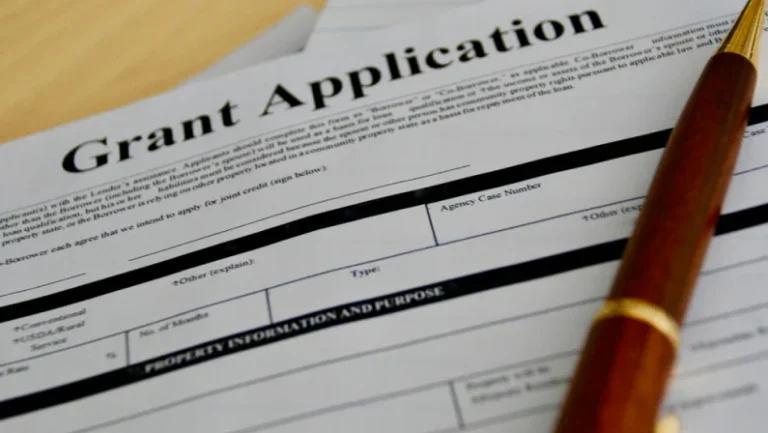Having technical skills is no longer enough when we talk about upgrading your career. You also need strong soft skills to succeed.
Whether it’s teamwork, communication, or problem-solving, these skills help you stand out, adapt, and grow in any workplace.
In this guide, you’ll find out why soft skills are important in the workplace.
What are Soft Skills?
The soft skills importance in the workplace cannot be overstated, as these personal and interpersonal qualities help you work well with others and navigate professional settings effectively. Unlike technical or “hard” skills, which are job-specific, soft skills include things like communication, teamwork, and adaptability. These skills shape how you interact, solve problems, and contribute to a positive work environment—making them just as important as technical expertise.
Why Are Soft Skills Important in the Workplace?

Employers value soft skills because they enhance productivity, foster collaboration, and improve workplace culture. No matter the industry, having strong soft skills can set you apart and help you grow professionally.
Here are three key reasons for the importance of soft skills in the workplace:
- Better Communication & Collaboration – Corporate soft skills make teamwork smoother, reducing misunderstandings and improving efficiency.
- Increased Job Performance – Employees with strong problem-solving and adaptability skills can navigate challenges and perform better under pressure.
- Career Growth & Leadership Potential – Employers seek professionals who can lead, motivate, and work well with others—qualities rooted in soft skills.
What Are Examples of Soft Skills?
Soft skills come in many forms, from how you analyze information to how you interact with colleagues. These qualities help you work effectively, no matter your role or industry.
Let’s take a closer look at some of the most valuable soft skills:
1. Analytical Skills
Analytical skills help you evaluate information, think critically, and make informed decisions. Whether you’re interpreting data, solving a problem, or strategizing for the future, these skills allow you to approach tasks logically and efficiently.
2. Communication
Strong communication is key in any workplace. This includes active listening, clear verbal and written communication, and the ability to express ideas effectively. Good communication fosters teamwork, prevents misunderstandings, and improves productivity.
3. Customer Service
Providing excellent customer service requires patience, empathy, and problem-solving abilities. Whether interacting with clients or internal teams, customer service skills help build trust, resolve issues, and create positive experiences.
4. Leadership
Leadership isn’t just for managers. It’s about motivating others, taking initiative, and making confident decisions. A strong leader can guide teams, inspire colleagues, and contribute to a company’s overall success.
5. Teamwork
Collaboration is essential in most workplaces. Being a team player means working well with others, sharing responsibilities, and contributing to group goals. It also involves being open to feedback and supporting colleagues.
6. Adaptability
The ability to adjust to change in today’s fast-paced work environment. Adaptable employees stay positive, embrace new challenges, and quickly learn new skills when needed.
7. Organization
Good organizational skills help you manage time, prioritize tasks, and stay on top of deadlines. This people soft skills ensure productivity and help maintain a structured work environment.
8. Open-Mindedness
Being open-minded allows you to consider new perspectives, accept feedback, and embrace innovation. It’s a key trait for growth and learning in any career.
9. Problem-Solving Skills
Employers value individuals who can identify challenges and find effective solutions. Strong problem-solving skills involve critical thinking, creativity, and the ability to stay calm under pressure.
10. Strong Work Ethic
A strong work ethic means being reliable, responsible, and dedicated to delivering quality work. It shows commitment and professionalism, making you a valuable asset to any organization.
Signs that You Need to Improve Your Soft Skills

Great soft skills play an important role in your professional success, but they don’t always come naturally. If you’re facing workplace challenges, it could be a sign that your soft skills need some refining. Recognizing these areas for improvement can help you become a more effective communicator, collaborator, and leader.
Here are some common signs that indicate it’s time to work on your soft skills:
1. You Struggle to Communicate Your Ideas Clearly.
If people frequently misunderstand you or ask for clarification, it may indicate that your communication skills need improvement. Clear communication involves organizing your thoughts, using precise language, and adapting your message to different audiences. Practicing active listening and refining your verbal and written communication can help you express your ideas more effectively.
2. You Often Experience Conflicts with Colleagues or Clients.
Frequent misunderstandings or tensions in the workplace could mean you need to improve your interpersonal skills. Conflict resolution requires emotional intelligence, patience, and the ability to see things from another person’s perspective. Strengthening your ability to manage disagreements professionally can lead to better relationships and a more positive work environment.
3. You Have Difficulty Adapting to Change in the Workplace.
If workplace changes leave you feeling overwhelmed or resistant, you may struggle with adaptability. Being flexible and open to new processes, technologies, or responsibilities is essential for long-term career growth. Embracing change with a positive mindset and learning to adjust quickly can make transitions smoother and less stressful.
4. You Find It Challenging to Work Effectively in a Team.
If you often prefer working alone or struggle to collaborate, it may indicate a need for stronger teamwork skills. Being a good team player involves listening to others, contributing ideas, and valuing diverse perspectives. Building strong relationships with colleagues and understanding group dynamics can make teamwork more productive and enjoyable.
5. You Receive Feedback About Lacking Leadership or Emotional Intelligence.
If managers or colleagues have pointed out that you lack leadership qualities or emotional awareness, it’s a sign that you could benefit from enhancing these skills. Leadership is also about inspiring and motivating others while maintaining self-awareness. Developing emotional intelligence and improving soft skills can help you better understand and manage emotions, improving your interactions with others and your overall workplace effectiveness.
How to Develop Marketable Soft Skills

Soft skills are essential for career success, and like any skill, they can be developed with consistent effort. Strengthening these abilities can make you more adaptable, collaborative, and effective in the workplace. Whether you’re looking to enhance your communication, leadership, or problem-solving skills, here are some key ways to improve your soft skills and boost your career potential.
1. Practice Active Listening and Effective Communication.
Good communication goes beyond speaking clearly—it also involves listening actively. By paying close attention to what others say, asking thoughtful questions, and providing appropriate responses, you can improve your interactions with colleagues and clients. Practicing clear and concise communication, both verbal and written will help you express your ideas effectively.
2. Seek Feedback and Work on Self-Improvement.
Constructive feedback is a valuable tool for growth. Regularly asking for input from supervisors, colleagues, or mentors can help you identify areas for improvement. Being open to criticism and actively working on self-improvement shows a willingness to learn and adapt, making you a more valuable team member.
3. Engage in Teamwork and Collaboration Opportunities.
The ability to work well with others is crucial in any professional setting. Look for opportunities to participate in group projects, brainstorming sessions, or team-building exercises. Practicing collaboration helps you develop interpersonal skills, build strong workplace relationships, and contribute to a more productive work environment.
4. Take Leadership and Problem-Solving Initiatives.
Leadership about taking initiative, solving problems, and making decisions with confidence. Even if you’re not in a leadership role, volunteering to take on responsibilities, mentor colleagues, or spearhead projects can demonstrate your leadership potential. Strong problem-solving skills also allow you to approach challenges strategically and find effective solutions.
5. Enroll in Professional Development and Training Programs.
Continuous learning is key to professional growth. Enrolling in workshops, webinars, or courses focused on soft skills—such as public speaking, negotiation, or emotional intelligence—can help you refine your abilities. Many organizations, including LSI, offer training programs that equip individuals with the skills needed to thrive in today’s workforce.
Discover Your Potential with LSI – The Trusted Economic Development Consultant
Investing in soft skills is a game-changer for career growth, and having the right guidance can make all the difference. As a leading economic development consultant, LSI specializes in workforce development programs, specifically in providing education on how to develop soft skills. Whether you’re looking to enhance communication, leadership, or teamwork, LSI provides expert training and resources tailored to your professional goals.
Take the next step in your career today—partner with LSI and build the soft skills that set you apart! Contact us now to learn more about our workforce development programs.





